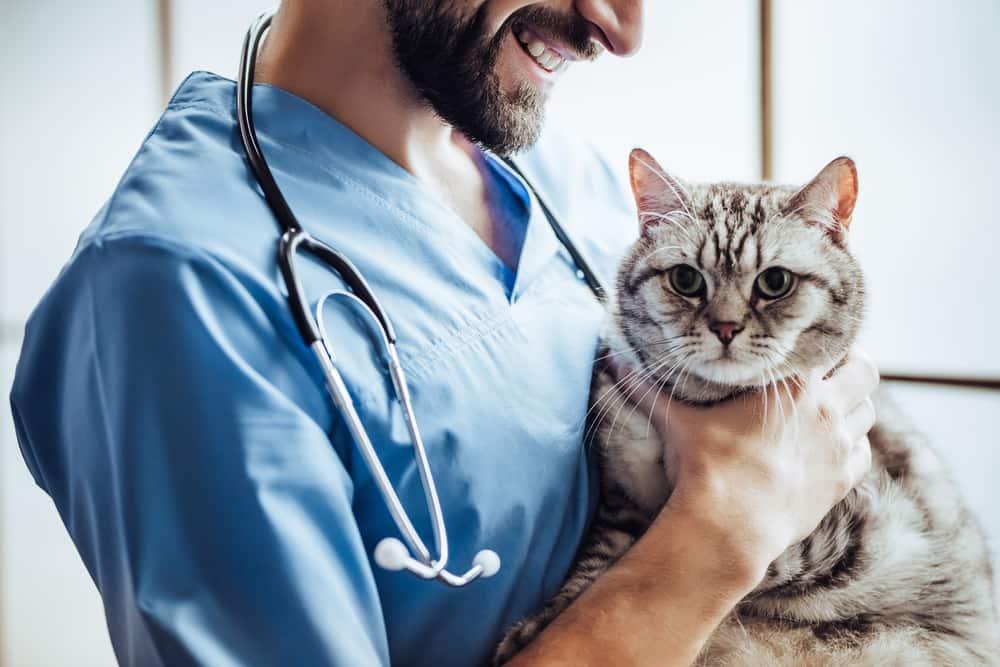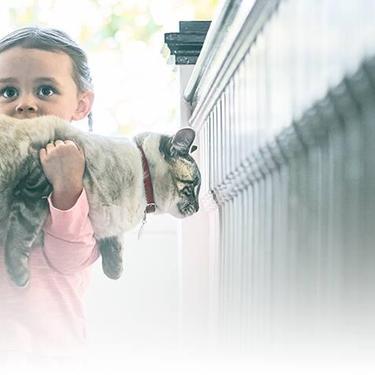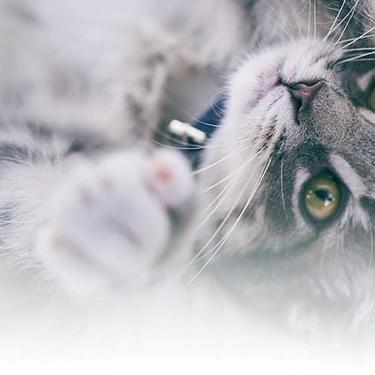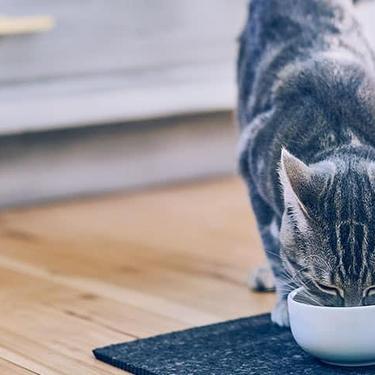
-
Find the right food for your petTake this quiz to see which food may be the best for your furry friend.Find the right food for your petTake this quiz to see which food may be the best for your furry friend.Health CategoryFeatured products
 Hill's Science Diet Adult Sensitive Stomach & Skin Chicken Recipe Dog Food
Hill's Science Diet Adult Sensitive Stomach & Skin Chicken Recipe Dog FoodHill's Science Diet Sensitive Stomach & Skin dry dog food is gentle on stomachs while nourishing skin & promoting a lustrous coat.
Shop Now Adult 7+ Small Bites Chicken Meal, Barley & Rice Recipe Dog Food
Adult 7+ Small Bites Chicken Meal, Barley & Rice Recipe Dog FoodSupports energy level and beautiful coat in mature dogs who prefer smaller kibble
Shop Now Adult Small Bites Chicken & Barley Recipe Dog Food
Adult Small Bites Chicken & Barley Recipe Dog FoodSupports lean muscle for dogs who prefer smaller kibble
Shop NowFeatured products Kitten Healthy Cuisine Tender Chicken & Rice Medley
Kitten Healthy Cuisine Tender Chicken & Rice MedleyDelicious tender chicken and rice in a mouthwatering sauce with precisely balanced nutrition to support 5 essential building blocks for lifelong health
Shop Now Adult Oral Care Chicken & Brown Rice Recipe Cat Food
Adult Oral Care Chicken & Brown Rice Recipe Cat FoodClinically proven kibble technology to reduce plaque & tartar build-up
Shop Now Adult Perfect Digestion Chicken, Barley & Whole Oats Recipe Cat Food
Adult Perfect Digestion Chicken, Barley & Whole Oats Recipe Cat FoodHill's Science Diet's breakthrough nutrition supports ultimate digestive well-being & healthy microbiome
Shop Now -
DogCat
- Cat Tips & Articles
-
Health Category
- Weight
- Skin & Food Sensitivities
- Urinary
- Digestive
- Kidney
- Dental
- Serious Illness
-
Life Stage
- Kitten Nutrition
- Adult Nutrition
Featured articles Cat vs. Dog: Which Is the Best Pet for Me?
Cat vs. Dog: Which Is the Best Pet for Me?Learn about important differences between dogs and cats, such as cost & space considerations. These factors can help you decide which pet is best for you.
Read More Adopting a Pet: What You Need to Know
Adopting a Pet: What You Need to KnowLearn the basics of adopting a pet, including where to begin and common questions you should ask yourself when deciding which kind of pet is best for you.
Read More Fun Ideas for Kids and Pets This Summer
Fun Ideas for Kids and Pets This SummerOutdoor summer activities with your dog or cat can be fun for kids, too. Learn how they also teach kids responsibility & creates a bond with their pet.
Read More -


Seeing a cat having seizures is scary for any pet parent. Caused by abnormal electrical activity in the brain, seizures can cause concerning behaviors, including thrashing, drooling and teeth chomping. But thankfully, even though they look frightening, they're not always a medical emergency.
Read on to learn why cat seizures happen and what you should do if your cat ever has one.
Cat Seizure Causes
Cat seizures are grouped into two categories: intracranial seizures, which are caused by something that exists inside the skull, and extracranial seizures, which are caused by something outside the skull.
The causes of an intracranial seizure include:
- Brain tumors
- Brain infections
- Brain trauma and inflammation
- Brain parasites, such as toxoplasmosis
Extracranial seizures can be caused by:
- Liver or kidney disease
- Exposure to a flea or tick product that isn't meant for cats
- Ingestion of human medicine
- Heatstroke
- Infectious diseases
- High blood pressure
Your cat could also have a seizure as a result of epilepsy, which means that the seizure's cause is unknown.
Signs & Symptoms of a Cat Seizure
Cat seizures can take many forms. Generalized or grand mal seizures can include convulsions, limb rigidity or paddling, loss of consciousness, abnormal vocalization and loss of urinary or bowel control. Grand mal seizures can occur alone or in clusters and typically last a minute or two. If a seizure lasts longer than five to 10 minutes then it's called "status epilepticus," and is a medical emergency; you should take your cat for emergency veterinary care immediately. However, you should take your cat to see your vet following any seizure just to get a full checkup and diagnosis.
Other types of seizures, such as absence seizures or partial seizures, during which a cat may exhibit tail chasing, aggression, shadow chasing or biting, are very rare.
Since seizures tend to be very brief, you may not notice your cat having one. Alternatively, you may notice abnormal behavior after a seizure, during what's known as the postictal phase. Your cat may exhibit excessive tiredness or excitement, binge eating and drinking, or abnormal pacing. If you notice any of these signs, contact your veterinarian.



Tasty Tips
What to Do If Your Cat Has a Seizure
Unless a cat is in status epilepticus, cat seizures are rarely a medical emergency, meaning that you do not have to go the emergency center immediately. If you notice your cat having a seizure but it stops after one to two minutes, then you should call your vet and make an appointment to have your cat seen as soon as possible. If they are short but back-to-back, or they have more than one, you should take your cat to the veterinarian immediately.
While your cat is having a seizure (and even after), don't touch them unless they're at risk of hurting themselves — if they're about to fall down the stairs or into deep water, for example. If you touch your cat while they're seizing, you risk the chance of getting a serious bite or scratch.
If the seizure isn't stopping, you should take your cat for emergency care. Use a thick towel to pick up and wrap your cat for safe transportation. At the vet's office, be prepared to answer questions about your cat's health history, including questions about:
- The number, frequency and length of their seizures
- Their vaccination history
- Whether they're an indoor or outdoor cat
- Nutrition and feeding
- Whether they've been vomiting or having diarrhea
- Recent weight changes
Your answers to these questions will help your vet recommend the appropriate testing and treatment. Testing can include blood and urine tests, fecal tests and/or imaging studies, such as X-rays, ultrasounds and MRIs.
Treatment for a Cat Having Seizures
If your cat is in status epilepticus, then the veterinary team will provide emergency care; this can include placement of an intravenous catheter, administration of anticonvulsant medicine (a medication that is used to help prevent or stop seizures, sometimes referred to as "anti-seizure") and collection of blood and urine samples for analysis.
If their seizures are rare, your cat may not require medicine, but if seizures are happening more often than every six to eight weeks, then treatment may be necessary to prevent further brain damage.
If a cat is stable and not currently seizing, then treatment may consist of oral anticonvulsant medicine and treatment of any underlying causes. If your vet prescribes your cat medicine, it's important to follow the dosing instructions. Changing the dose or suddenly stopping the medicine could cause seizures to resume or worsen.
The Connection Between Cat Seizures and Nutrition
If your cat is having issues with seizures, a vet or veterinary nutritionist should evaluate their nutrition. If your cat is suffering from a disease elsewhere in the body that can cause seizures, such as liver disease or kidney disease, proper nutrition can help reduce the effects these diseases have on the brain.
Any cat, including one that is experiencing seizures or neurological signs, can benefit from eating a complete and balanced food that's high in antioxidants and omega-3 fatty acids, unless otherwise directed by your vet.
Cat seizures are always scary to witness, but luckily, very rare for cats. Proper veterinary care can often resolve whatever is causing the condition and get your kitty back to feeling like themselves.


Dr. Sarah Wooten graduated from UC Davis School of Veterinary Medicine in 2002. A member of the American Society of Veterinary Journalists, Dr. Wooten divides her professional time between small animal practice in Greeley, Colorado, public speaking on associate issues, leadership, and client communication, and writing. She enjoys camping with her family, skiing, SCUBA, and participating in triathlons.
Related products

Delicious tender chicken and rice in a mouthwatering sauce with precisely balanced nutrition to support 5 essential building blocks for lifelong health

Clinically proven kibble technology to reduce plaque & tartar build-up

Delicious roasted chicken and rice in a mouthwatering sauce

Hill's Science Diet's breakthrough nutrition supports ultimate digestive well-being & healthy microbiome
Related articles

Provide the best possible treatment for cats with sensitive skin by spotting the signs, knowing the causes, and understanding the remedies. Learn more now.

Obesity affects more than 30 percent of cats in America. Learn how you can properly feed and exercise your cat to improve its weight management.

Understand the symptoms of a chronic upset stomach in your cat, and learn how to help sooth their discomfort.

Get helpful information on proper feline oral healthcare and why it's so vital to take care of your cat's teeth.

Put your cat on a diet without them knowing
Our low calorie formula helps you control your cat's weight. It's packed with high-quality protein for building lean muscles, and made with purposeful ingredients for a flavorful, nutritious meal. Clinically proven antioxidants, Vitamin C+E, help promote a healthy immune system.
Put your cat on a diet without them knowing
Our low calorie formula helps you control your cat's weight. It's packed with high-quality protein for building lean muscles, and made with purposeful ingredients for a flavorful, nutritious meal. Clinically proven antioxidants, Vitamin C+E, help promote a healthy immune system.

